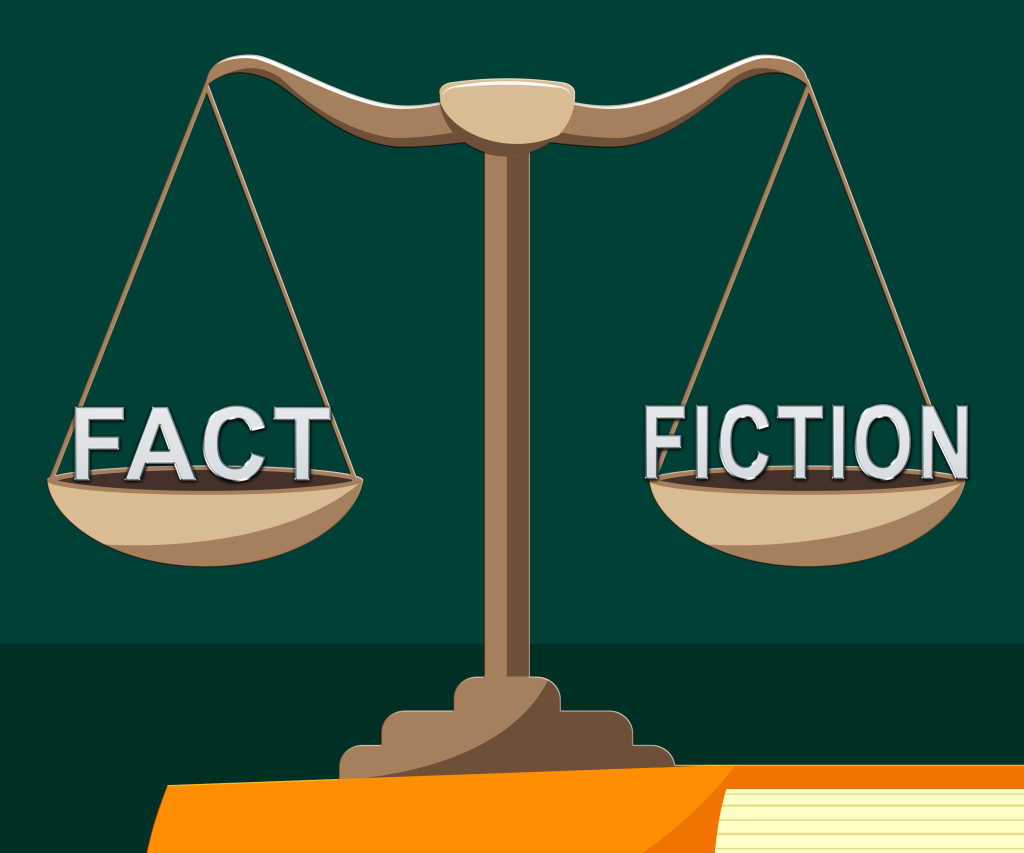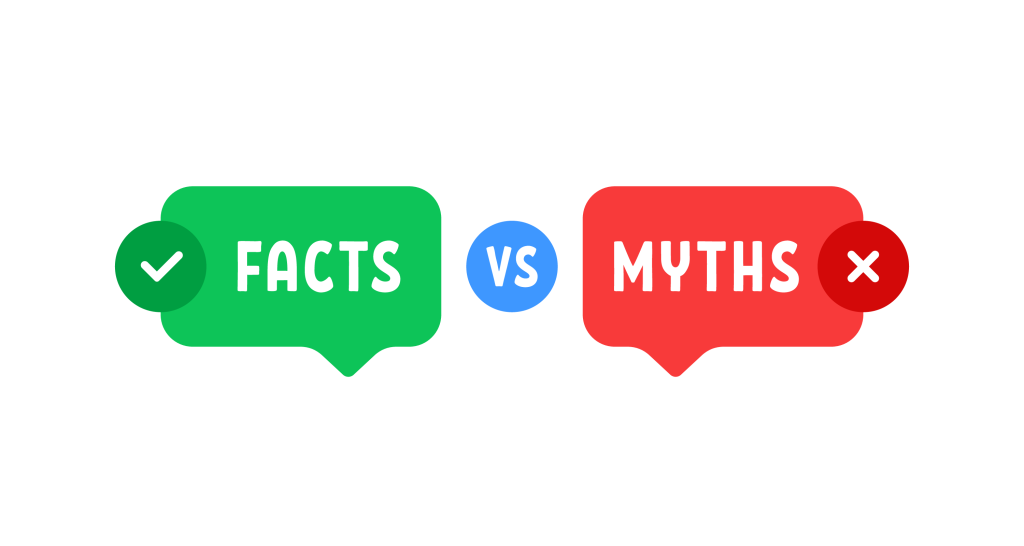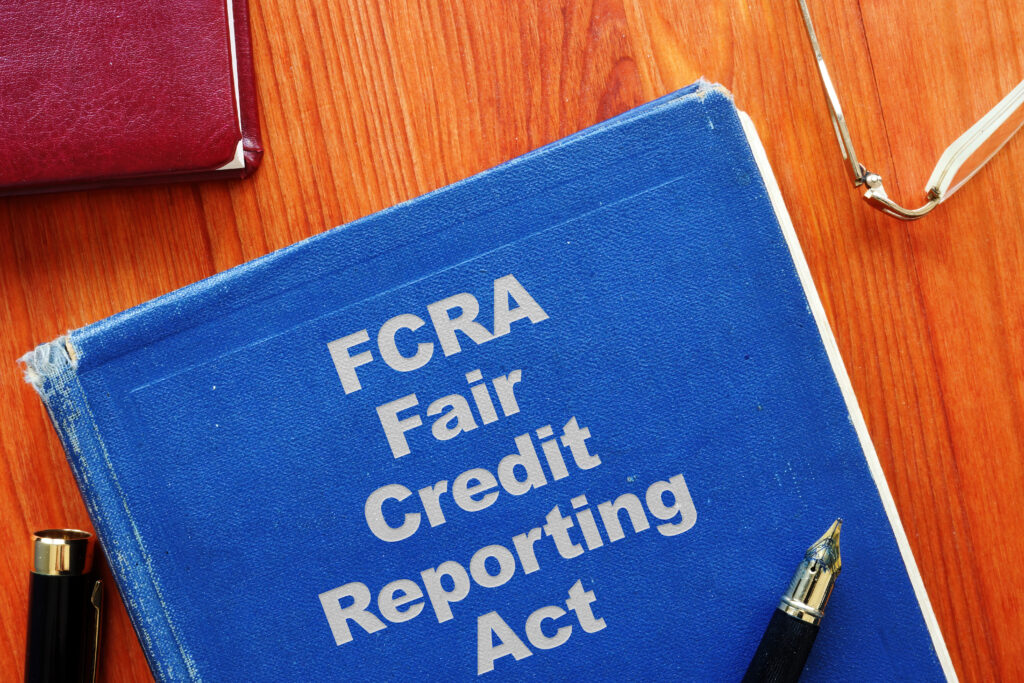8 Credit Score Myths That Affect All Areas of Your Financial Life. Expert Guide to Separating Facts from Fiction. Find Out More In Our Latest Article!
THIS ARTICLE MAY CONTAIN AFFILIATE LINKS, MEANING I GET A COMMISSION IF YOU DECIDE TO MAKE A PURCHASE THROUGH MY LINKS AT NO COST TO YOU. PLEASE READ MY AFFILIATE DISCLOSURE FOR MORE INFO.
DON’T HAVE TIME TO READ THE FULL ARTICLE. HERE’S WHAT YOU ARE MISSING.
- 8 Credit Score Myths That Affect All Areas of Your Financial Life. Expert Guide to Separating Facts from Fiction. Find Out More In Our Latest Article!
- Understanding Credit Scores
- The Impact of Credit Score Myths on Your Financial Life
- Myth #1: You Only Have One Credit Score
- Myth #2: Checking Your Credit Score Will Lower It
- Myth #3: Personal Details Like Age, Income, and Sex Affect Your Score
- Myth #4: A Higher Salary Will Boost Your Score
- Myth #5: You Can Dispute to Remove Any Unfavorable Information
- Myth #6: Shopping for a Loan Will Hurt Your Credit Score
- Myth #7: Credit Card Offers Are Damaging Your Score
- Myth #8: Getting Married Merges Your Credit Scores
Your credit score touches almost every part of your financial life, whether you’re hunting for a loan, purchasing a vehicle, applying for a mortgage or just trying to rent a home or an apartment.
Still, many people believe things about credit scores that aren’t true.
These myths can also trip you up when you’re aiming for good rates on loans or credit cards.

Eight common credit score myths can mess with your financial health if you fall for them. Some of these make people avoid checking their credit.
In contrast, others lead to bizarre beliefs, such as the notion that your income determines your credit score, or that marriage automatically merges your credit with your partner’s.
When you know what changes your credit score, you can make smarter money choices. The facts let you build stronger credit and save on loans.
Key Giveaways
- Credit score myths can lead you to poor financial decisions and cost you money.
- Understanding how credit scores work helps you make smarter moves with loans, cards, and big purchases
- Improving your credit score the right way can save you thousands over time
Understanding Credit Scores

Credit scores range from 300 to 850 and are based on formulas that consider five primary factors. The three major scoring models all use their mathematical formulas, and each lender chooses which one to trust.
What Is a Credit Score?
A credit score is just a three-digit number showing how likely you are to pay back borrowed money. Lenders use this number to decide if you get approved and what interest rate you’ll face.
Most scores sit between 300 and 850. Higher is better—less risk for lenders. Most folks land between 600 and 750.
Your score is based on your credit reports. It’s based on your payment history, debt, and the length of your credit history. Credit bureaus obtain this information from banks, credit card companies, and other lenders.
Fair Isaac Corporation (FICO) introduced its first major credit scoring system in 1989. VantageScore came along in 2006 as another major player. Both help lenders make quick decisions about your applications.
How Credit Scores Are Calculated
Your score depends on five primary factors, each with its own weight:
| Factor | FICO Weight | Impact |
| Payment history | 35% | Late payments, defaults, bankruptcies |
| Credit utilization | 30% | Amount owed vs. credit limits |
| Length of credit history | 15% | Age of oldest and newest accounts |
| Credit mix | 10% | Types of credit (cards, loans, mortgage) |
| New credit | 10% | Recent applications and new accounts |
Payment history matters most. Just one late payment can drop your score by 60 to 110 points. If you miss a payment by 30 days or more, it gets reported.
Credit utilization refers to the percentage of credit you use compared to your credit limits. Most experts recommend keeping it under 30% on each card and overall. Lower is usually better.
Scoring models also consider negative factors, such as collections, charge-offs, and public records. These stay on your report for years, but the impact lessens as time passes.
Major Credit Score Models
FICO Score is still the standard.
90% of top lenders use FICO® Scores—do you know yours?
FICO even offers different versions for various types of loans, including auto loans and mortgages.
FICO score ranges:
- Exceptional: 800-850
- Very Good: 740-799
- Good: 670-739
- Fair: 580-669
- Poor: 300-579
VantageScore uses similar factors but weighs them differently. VantageScore 4.0 places greater emphasis on recent activity and trending data. It can help people with thin credit files get a score.
Industry-specific scores exist for auto loans, mortgages, and credit cards. For example, auto lenders use FICO Auto Score, which runs from 250 to 900.
Each credit bureau may show a slightly different score, as they receive various information from lenders. Some creditors report to all three bureaus, while others report to only one or two.
The Impact of Credit Score Myths on Your Financial Life

Credit score myths can have real consequences, from increasing your borrowing costs to affecting your loan approvals. These beliefs steer people toward poor credit decisions and missed opportunities to improve their finances.
How Misconceptions Influence Financial Decisions
Credit score myths influence how people manage their finances and approach borrowing. If you think checking your score will lower it, consider stop monitoring your credit altogether.
That means you could miss fraud or errors that quietly wreck your score for months. Lots of people only spot problems when they’re applying for something big, like a mortgage.
Common mistakes include:
- Steering clear of credit cards because you’re afraid they’ll hurt your score
- Not shopping around for better loan rates
- Paying for credit monitoring, you may not need it
- Making money decisions based on income, not credit utilization
The myth that income affects your score leads people to chase higher pay instead of managing debt. Someone earning $ 150,000 with high credit card balances can have a worse score than a person making $ 40,000 but keeping balances low.
Many people also believe that marriage combines credit scores. This prevents couples from discussing their credit before making significant purchases.
Familiar Sources of Credit Score Myths
Credit score myths spread from all over. Social media is a big one—viral posts and “advice” that’s not always right.
Where do these myths usually come from?
- Family and friends passing on old or wrong info
- Social media influencers who aren’t real financial experts
- Outdated financial advice from decades ago
- Confusing credit company marketing materials
Advice from older generations often reflects how things worked 20 or 30 years ago. Credit scoring has undergone significant changes, but outdated advice persists.
Online forums are full of people sharing what they think is right, but sometimes it’s just plain wrong. For example, someone might say closing credit cards always helps your score, but that can shorten your credit history and hurt your score.
Even mail from credit card companies can be misleading. Pre-approved offers don’t guarantee approval, but some people worry that those mailings count as hard inquiries, which can lower their score.
Myth #1: You Only Have One Credit Score

Most people assume they have just one credit score. That’s not the case. You actually have dozens of scores that lenders use for loans, cards, and more.
Reality of Multiple Credit Scores
Different companies create scores using their own formulas. FICO is the most common, but there are 28+ FICO versions. VantageScore is another big name.
Each model checks your credit report in its own way. Some care more about recent activity, others about how long you’ve had accounts.
The three main credit bureaus each build their own scores:
- Experian FICO Score
- Equifax FICO Score
- TransUnion FICO Score
Scores can swing by 20-50 points, even for the same person. That’s because each bureau might have slightly different info about you.
Industry-specific scores are a thing, too. Auto lenders use FICO Auto Scores, while credit card companies look at FICO Bankcard Scores. These focus on what matters most for each kind of loan.
How Lenders Use Different Scores
Lenders pick which score to use based on what they’re offering. Mortgage companies tend to stick with older FICO models like FICO Score 2, 4, or 5. They’ve relied on these for years.
Credit card companies usually go with FICO Score 8 or something newer. Auto dealers like FICO Auto Score 8 because it’s tuned for car loans.
Some lenders pull all three bureau scores and use the one in the middle. Others just check one bureau. This choice changes which version of your score they see.
Lenders set their own score requirements, too:
| Loan Type | Typical Score Used | Common Requirement |
| Mortgage | FICO 2, 4, or 5 | 620 |
| Auto Loan | FICO Auto 8 | 580 |
| Credit Card | FICO 8 or 9 | 650 |
The score you see on free credit apps might not match what lenders see. Knowing this helps explain why you might get approved or denied when you weren’t expecting it.
Myth #2: Checking Your Credit Score Will Lower It

Plenty of people skip checking their credit scores because they’re afraid it’ll hurt their credit. This comes from confusion about different types of credit checks and how they actually affect your score.
Difference Between Hard and Soft Inquiries
Soft inquiries don’t affect your credit score. You’ll see these when you check your own score or when companies run background checks for pre-approved offers.
Here are some common soft inquiries:
- Personal credit score checks
- Employer background checks
- Insurance quote requests
- Pre-approved credit card offers
Hard inquiries might lower your score by a few points. These show up when you apply for new credit and the lender wants your full credit report.
You’ll usually get hard inquiries during:
- Mortgage applications
- Auto loan applications
- Credit card applications
- Personal loan requests
Hard inquiries hang around on your credit report for two years. They only affect your score for the first 12 months, though.
Best Practices for Monitoring Credit
Honestly, it’s smart to check your credit score regularly. Free monitoring services use soft inquiries, so there’s no risk to your score.
Monthly checks help you:
- Spot errors quickly
- Track score improvements
- Catch identity theft early
- Understand credit changes
Most credit card companies now offer free score monitoring. Plenty of banks and financial apps do the same, and you don’t have to pay for it.
The three big credit bureaus each give you one free credit report a year. If you space those reports out every four months, you can keep tabs on things all year long.
Setting up alerts for credit changes is another good move. Most services send you a heads-up if your score shifts or a new account pops up.
Myth #3: Personal Details Like Age, Income, and Sex Affect Your Score

Credit scoring models don’t factor in your age, income, or sex when figuring out your score. These details are left out by law and by how the scoring systems are built.
What Personal Data Is Excluded
The Fair Credit Reporting Act (FCRA) blocks credit bureaus from using certain personal info. This law helps protect people from discrimination based on things like race or gender.
Here’s what they legally can’t use:
- Age (except a slight exception for seniors)
- Gender or sex
- Race or ethnicity
- Religion
- National origin
- Marital status
- Salary or income
- How long you’ve worked
- Where you live
The only time age matters is if you’re over 62, and that’s just a small exception under the Equal Credit Opportunity Act.
Your income doesn’t count toward your score at all. Someone making $30,000 can have an 800 score, while a person earning $200,000 might still end up with a 500 if they manage credit poorly.
Credit scoring models care about how you handle debt—not how much money you make. That’s supposed to keep things fair for everyone.
Factors That Really Matter
Your credit score comes down to five main categories. These show lenders if you’re good at managing borrowed money.
Payment History (35%)
- Paying on time helps your score
- Late payments hurt your score
- Missed payments really stick around
Credit Utilization (30%)
- How much of your credit limit you’re using
- Lower is better—try to keep it under 30%
- High balances drag your score down
Length of Credit History (15%)
- How long you’ve had your accounts
- Older accounts help more
Credit Mix (10%)
- Different types of credit (cards, loans, mortgages)
- Variety shows you can handle it all
New Credit (10%)
- Recent credit applications
- Too many new accounts can ding your score
Lenders look at these to predict if you’ll pay back your debts. That’s what really counts.
Myth #4: A Higher Salary Will Boost Your Score

A lot of folks think a bigger paycheck means a better credit score. In reality, income matters to lenders, but credit scoring models don’t include your salary at all.
How Income Is Viewed by Lenders
Scoring models like FICO and VantageScore ignore income completely. They look at your credit history, payment habits, and how you manage debt—not how much you earn.
Lenders still ask for your income when you apply for a loan. They use it to figure out your debt-to-income ratio and how much you can borrow.
Lenders use income to:
- Decide if you can handle new debt
- Set loan amounts
- Choose interest rates and terms
- Check your financial stability
Someone making $30,000 a year could have a top-notch score of 800. At the same time, a person earning $150,000 might have a lousy score if they don’t manage credit well.
Credit scoring treats everyone the same, no matter how much they make. It’s all about payment history and credit utilization.
Income vs. Credit Utilization
Having a higher income can make it easier to keep your credit utilization low. People with more money usually don’t need to run up big credit card balances.
Credit utilization makes up 30% of your FICO score. It’s just your balances compared to your total credit limits.
To keep utilization in check, try to:
- Keep balances under 30% of your limits
- Pay off cards in full each month if you can
- Spread balances across cards
- Ask for higher credit limits
If you earn $100,000, you might get higher credit limits than someone making $40,000. That helps you keep your utilization low, even if you spend the same amount.
But income alone won’t fix bad credit habits. High earners who max out cards or miss payments will see their scores drop, just like anyone else.
Myth #5: You Can Dispute to Remove Any Unfavorable Information

Some people think they can dispute any negative item off their credit report. In reality, the dispute process only works for info that’s wrong or can’t be verified—not for legitimate negative marks.
Legitimate Dispute Process
The Fair Credit Reporting Act lets you dispute inaccurate information on your credit report. This is helpful when there are real errors.
You can dispute things like:
- Wrong account balances or payment info
- Accounts that aren’t yours
- Duplicate entries for the same debt
- Incorrect dates for late payments or openings
- Closed accounts listed as open
Credit bureaus have to look into disputes within 30 days. They’ll reach out to the creditor to check the facts.
If the creditor can’t verify the info or admits it’s wrong, the bureau has to fix or remove it. You can file disputes online, by phone, or by mail.
Limits of Credit Report Disputes
Disputing accurate negative info won’t get it taken off. Credit bureaus and creditors will confirm real debts and negative marks.
Here’s what you can’t dispute away:
- Late payments that actually happened
- Verified charge-offs or collections
- True bankruptcy filings or foreclosures
- Legitimate hard inquiries from applications
Some companies claim they can wipe out accurate negatives by disputing over and over. That rarely works and can cross into fraud territory.
Even if something gets removed for a while because of a delayed investigation, creditors often re-report it later and it pops back up on your report.
Myth #6: Shopping for a Loan Will Hurt Your Credit Score

Lots of people skip rate shopping because they’re worried about multiple credit checks hurting their score. But credit scoring models actually group similar loan inquiries together within a set window, so you can shop around without piling up damage.
How Rate Shopping Really Works
Credit bureaus know people need to compare rates for big purchases. FICO models group auto, mortgage, or student loan inquiries as one if they happen within a 14-45 day window.
This lets you apply with different lenders and only take a single hit to your score. The time window depends on which FICO version is in play.
How it works by loan type:
- Auto loans: 14-45 day window
- Mortgages: 14-45 day window
- Student loans: 14-45 day window
- Credit cards: Each inquiry counts separately
- Personal loans: Each inquiry counts separately
Grouped inquiries usually lower your score by less than five points. That impact fades away after about a year.
Strategies to Minimize Credit Impact
You can shop smart and protect your credit. Timing is everything—try to get all your applications done within 14 days so they’re grouped together.
Check rates with soft inquiries first if you can. Many lenders offer pre-qualification tools that won’t ding your score.
Stick to one loan type at a time. If you mix auto loan and credit card applications, those won’t get grouped.
Get pre-approved before you shop. Pre-approval letters show sellers you’re serious and cut down on extra credit checks.
Hold off on new credit cards during your loan shopping period. Card inquiries always count separately and can add up fast.
Myth #7: Credit Card Offers Are Damaging Your Score

Lots of folks think getting credit card offers in the mail hurts their credit score. That’s not how it works at all.
Credit card companies use soft credit inquiries to decide who gets pre-approved offers. These soft pulls never touch your score.
The real confusion pops up after you get the offer. If you actually apply, the company does a hard credit inquiry, which can shave a few points off your score.
Your score only takes a hit when you fill out the application and send it in. Just getting offers in your mailbox doesn’t leave a mark on your credit history.
Some people worry that getting lots of offers means companies are constantly checking their credit, but that’s not true. These companies buy lists of people who fit certain criteria—they’re not peeking at your actual credit report every time.
The marketing process doesn’t trigger a credit check. You could get piles of offers and your score would stay exactly the same.
Managing Pre-Approved Offers
If you’re tired of the flood of offers, you can control it. The OptOutPrescreen.com website lets you stop pre-screened offers for five years or even forever.
This site is run by the major credit bureaus. It takes your name off the lists that credit card and insurance companies use for marketing.
Opting out won’t affect your credit score at all. You’ll just have less junk mail to deal with.
Some people like getting offers so they can keep an eye on new credit products. Others get overwhelmed and want out completely.
If you change your mind, you can opt back in anytime. It’s pretty flexible, so you’re always in control of these mailings.
Myth #8: Getting Married Merges Your Credit Scores

Marriage ties two people together in a legal sense, but it doesn’t magically combine their credit reports or scores. Each person keeps their own credit history and score, even after tying the knot.
How Credit Files Remain Separate
Credit reports and scores stick to individual Social Security numbers, no matter what. The credit bureaus don’t merge files when you get married.
Your credit history from before marriage stays on your report. Your spouse’s history stays on theirs.
Key facts about separate credit files:
- Each spouse has their own credit report
- Past mistakes don’t transfer between spouses
- Credit scores remain independent
- Credit inquiries only show up for the person who applied
If you apply for a credit account by yourself, lenders only look at your file. They can’t see your spouse’s info unless you both apply together.
Marriage doesn’t erase bad credit. If you had poor credit before, you’ll still have it after.
Joint Accounts and Shared Financial Responsibility
Opening a joint credit account means you both share responsibility for the debt. Both names go on the account, and both people are fully responsible.
Joint account impacts:
- Payment history shows up on both reports
- Late payments hit both scores
- Balances affect both people’s credit utilization
- Responsibility sticks, even after divorce
Adding a spouse as an authorized user is different from opening a joint account. The main account holder is still on the hook for payments.
Authorized users can build credit history, but their score depends on the main account holder’s payment habits.
Some couples keep everything separate, while others mix joint and individual accounts. It really depends on their goals and comfort level.
Advantages of Dispelling Credit Score Myths
Getting the facts straight about credit scores leads to smarter choices and better loan options. If you know how credit works, you’re less likely to make costly mistakes and more likely to build a solid financial future.
Improved Financial Decision-Making
When people know how credit scores actually work, they make smarter money moves. They realize checking their own score is harmless, so they do it more often.
This way, they catch errors early. Credit report mistakes are surprisingly common and can drag down your score for no good reason.
Key areas where myth-busting helps:
- Credit monitoring – No more fear about checking scores
- Payment timing – Knowing payment history matters most
- Credit utilization – Keeping balances below 30% of limits
- Account management – Understanding when to close or keep accounts
People also learn that income doesn’t directly affect credit scores. That stops them from thinking a bigger paycheck will magically fix their credit.
They focus on what really matters: paying bills on time and managing debt. Those are the things that actually move the needle.
Access to Better Credit Opportunities
Knowing the truth about credit helps people qualify for better loans and cards. They realize having multiple credit scores is normal, not some kind of red flag.
This makes loan shopping less stressful. They know that rate shopping within a 14-45 day window counts as just one inquiry, not a bunch.
Benefits of credit knowledge:
- Lower interest rates on loans
- Better credit card offers with rewards
- Higher credit limits when requested the right way
- Faster loan approvals thanks to better management
People understand that marriage doesn’t merge credit scores, so couples can plan more realistically. They work together to improve individual scores instead of hoping for instant changes.
Disadvantages of Believing Credit Score Myths
Believing credit score myths can seriously hurt your finances and block you from getting good loan deals. These myths lead people to make decisions that actually lower their creditworthiness.
Potential Harm to Credit Health
Myths about credit scores can really mess things up. If you think you only have one score, you might ignore problems on your other reports.
This tunnel vision means errors on other reports slip by unnoticed. Credit bureaus use different scoring models, so each report can tell a different story.
The myth that checking your credit lowers your score stops people from monitoring their accounts. Regular checks help catch identity theft early, but without them, fraud can go undetected for months.
Some folks believe that disputing negative info will just wipe it away. They waste time on disputes for accurate info instead of making real improvements.
Key problems from believing myths:
- Ignoring more than one credit report
- Missing signs of identity theft
- Filing pointless disputes
- Skipping helpful credit checks
Missed Financial Opportunities
Credit myths can keep people from getting the best financial products. If you think shopping for loans will tank your score, you might not compare rates at all.
Rate shopping within 14-45 days usually counts as one inquiry. People who don’t shop around often settle for the first offer, which can mean paying way more in interest.
The myth about credit card offers hurting your score makes some folks avoid cards that could actually help them—like those with cash back, travel perks, or good balance transfer deals.
Marriage myths about credit can discourage couples from planning together. They might think their scores merge or that one person’s bad credit ruins everything for both.
Missed opportunities include:
- Higher loan interest rates
- Getting turned down for better cards
- Missing out on rewards
- Weak joint financial planning
If people think income affects credit scores, they might not apply for loans when they actually qualify. This can delay big life steps like buying a home or car.
Actionable Steps to Improve Your Credit Score
Boosting your credit score takes steady monitoring, good habits, and knowing where to find solid advice. These three things work together to strengthen your credit profile over time.
Regular Credit Monitoring Tips
You can check your credit reports from all three bureaus for free weekly or at least once a year using AnnualCreditReport.com. It’s free and helps you spot errors, identity theft, and outdated info that could hurt your score.
Set up credit monitoring alerts if you can. Many banks and card companies offer free tools that ping you when your score moves a lot.
Keep an eye on your credit utilization every month. That’s how much credit you’re using compared to your total limits. Staying under 30% on all cards keeps your score healthier.
Key monitoring actions:
- Check reports every four months from different bureaus
- Set up automatic alerts for score changes
- Watch credit utilization weekly
- Review hard inquiries for anything fishy
Regular monitoring helps you catch problems fast. Acting quickly on mistakes or fraud can save your score from long-term damage.
Building Positive Credit Habits
Payment history is 35% of your score, so never miss a payment. Set up autopay for at least the minimum to avoid slip-ups.
Paying down your debt helps your credit utilization ratio. Focus on cards with the highest utilization, not just the highest interest rates.
Keep old credit accounts open if possible. Closing them can lower your average account age, which can ding your score.
Effective credit-building strategies:
- Pay bills before due dates
- Keep utilization below 10% for the best scores
- Pay down balances before statement dates
- Don’t close accounts unless there’s an annual fee
Consider becoming an authorized user on a family member’s account with a good history. This can help you build credit faster, especially if you’re just starting out.
Leveraging Expert Resources
Professional credit counselors can give you custom advice for tricky situations. Non-profit agencies offer free consultations and can help you set up debt management plans.
Financial advisors can explain how credit scores affect big life decisions, like buying a house or starting a business. They connect credit strategies to your bigger financial goals.
Reputable financial institutions post updated info about credit scoring changes. Their online tools and calculators can help you predict how certain moves might affect your score.
Professional resources to consider:
- Non-profit credit counseling services
- Certified financial planners
- Credit repair attorneys if you need legal help
- Educational resources from credit bureaus
Always check a credit expert’s credentials before working with them. Legit professionals won’t promise a specific score boost or charge big upfront fees.
Key Giveaways
Understanding these credit score myths helps you make better choices and dodge expensive mistakes. Good financial planning means learning from the experts and staying curious about credit management.
Investing in Your Financial Future
Building strong credit takes time and a bit of patience. If you know how credit scores really work, you can save thousands over your lifetime.
Smart Credit Strategies:
- Check all three credit reports regularly
- Keep credit utilization below 30%
- Pay on time, every month
- Don’t close old accounts unless you have to
Improvement doesn’t happen overnight. Most positive changes take three to six months to show up on your reports.
Focus on long-term habits, not quick fixes. Good credit habits pay off with lower rates on loans and cards.
Young adults who start early have a real edge. They can build a solid credit history before it’s time for big purchases like homes or cars.
Quick Reference to Expert Resources
Expert credit advice can make a huge difference when you’re faced with tricky financial decisions. Good professional guidance saves you time and, honestly, helps you avoid some expensive mistakes.
Key Resources:
- Credit counseling services
- Financial advisors
- Online credit monitoring tools
- Educational websites and courses
Working with certified credit counselors really helps a lot of people. These pros take your unique financial situation and give you advice that actually fits.
Free government resources are out there if you want reliable credit info without the sales pitch. The Federal Trade Commission and Consumer Financial Protection Bureau share accurate guidance, no strings attached.
Online tools now make credit monitoring a breeze. Plenty of banks and credit card companies let you track your credit score for free if you’re a customer.
Related Articles for Further Learning
Staying informed about changing credit rules isn’t just smart—it’s kind of necessary. You build your financial knowledge by reading and learning regularly, even if it’s just a few articles here and there.
Essential Topics:
- Credit report disputes and corrections
- Debt consolidation strategies
- Building credit from scratch
- Credit score improvement timelines
Reading about real-world credit situations? It prepares you for your own bumps in the road. Case studies often show how others have solved credit problems, which is more helpful than you’d think.
Industry updates matter too, since new credit laws and regulations pop up all the time. Credit scoring models keep changing, and lenders adjust how they make decisions.
Financial blogs and reputable websites are great for ongoing education. Bookmark a few trusted sources so you can find up-to-date info whenever you need it.
Keep learning, and you’re less likely to fall for credit scams or myths. Staying sharp protects you from predatory lending and other financial traps.
Frequently Asked Questions
Credit scores confuse a lot of people, and that confusion can lead to some pretty bad financial moves. Clearing up the most common questions helps you make smarter choices about your credit and your future.
Does closing overdue accounts improve your credit score?
Closing overdue accounts won’t improve your score. The late payments stick around on your credit report for seven years, even after you close the account.
Your credit utilization might even get worse if you close accounts. Since your available credit drops but your debt doesn’t, your score can take a hit.
The better move is to bring overdue accounts current. That stops more late payments from showing up and gives you a chance to rebuild your payment history.
Is it true that having no debt guarantees a high credit score?
No debt doesn’t mean you’ll have a high credit score. Scores measure how you handle credit, not whether you avoid it entirely.
If you have no credit history, your score might be low or even nonexistent. Credit bureaus need something to go on, after all.
Managing a small amount of debt responsibly actually helps. Regular payments on a credit card or loan show that you can handle credit, and your score improves over time.
How do credit card companies profit from their customers?
Credit card companies earn money through interest on unpaid balances. They also rake in fees for late payments, cash advances, and annual memberships.
Merchant fees are another steady income stream. Every time you use your card, businesses pay a percentage of the transaction.
Some companies even make money selling customer data to marketers. Partnerships with retailers and rewards programs bring in extra revenue too.
Can you have a high credit score with a low income?
Absolutely, you can have a high credit score even if you don’t make a lot. Credit scores don’t care about your income amount.
What matters more is your payment history and how much of your credit you use. Someone making $30,000 who pays on time can have a better score than someone making $100,000 who doesn’t.
Lenders look at income when they decide on loan approval, but that’s separate from your score. With a high score and low income, you might get approved for credit, just with lower limits or higher rates.
What are some widespread misconceptions about improving your credit score?
Lots of folks think paying off all debt instantly boosts their score, but that’s not always true. It can actually lower your score by shrinking your credit mix and payment history.
Another common myth: checking your own credit score hurts it. It doesn’t—soft inquiries like that have zero impact.
Some people believe closing old credit cards helps. Usually, it does the opposite by lowering your available credit and shortening your credit history.
There’s also the idea that credit repair companies can erase accurate negative info. Only time and good habits can fix your score for real.
Ready to Take Action
Learning about these 8 credit score myths that affect all areas of your financial life is just step one. Improving your credit health takes steady effort and some smart moves.
Start today by:
- Checking your credit reports from all three bureaus
- Setting up credit monitoring alerts
- Reviewing your credit utilization rates
- Disputing any actual errors you find
Don’t let myths hold you back from financial wins. Your credit score can affect mortgage rates, car loans, and even job offers.
Ready to take control? Visit Millennial Credit Advisers for credit improvement strategies tailored to you. Their experts will help you craft a plan that fits your situation.
Next steps include:
- Creating a debt payoff plan
- Learning about different credit products
- Building an emergency fund
- Understanding how major life changes affect credit
Financial prep isn’t just about credit scores. If a big life change is coming, like a new baby, check out how to financially prepare for a baby for more tips.
Remember: Good credit habits take time. Start small, stick with it, and you’ll see better financial opportunities down the line.
Don’t let old myths limit what you can do. Take that first step toward stronger credit right now.
In what ways does your credit score most significantly influence your financial opportunities?
Your credit score shapes the interest rates you get on loans and credit cards. Even a 100-point swing can add up to thousands more in interest over the years.
When it comes to housing, your score matters a lot. Landlords often turn down applicants with low scores.
Mortgage lenders usually give better rates to people with higher scores. That can make a huge difference in your monthly payment.
Some employers check your credit report, especially for jobs that deal with money or sensitive info. A rough credit history might hurt your chances.
Insurance companies also look at your score when setting rates. If your credit’s not great, you could end up paying a lot more for auto or homeowner insurance.
Disclaimer: Millennial Credit Advisers is not a licensed credit service provider or financial advisor. We don’t offer credit repair, debt management, or legal services. Educate yourself on saving, reducing debt, and managing credit for economic improvement. Understand credit reports, scores, and financial products. Consult a financial advisor for personalized advice. Track your progress for a better credit journey.
Written content: Please view our full AI Use Disclosure.
“We improve our products and advertising by using Microsoft Clarity to see how you use our website. By using our site, you agree that we and Microsoft can collect and use this data. Our privacy policy has more details.”
















